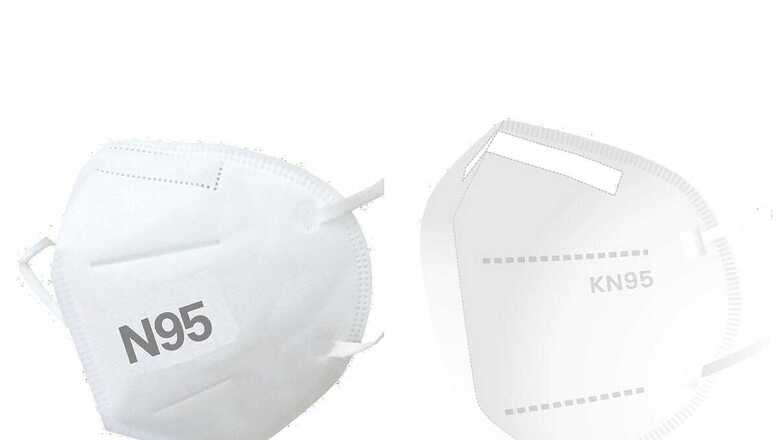
views
As the country sees a surge in Covid-19 cases, the use of masks has become once again more important than ever before. Among the various types of masks available, N95 and KN95 masks are two of the most popular and effective options for protecting against respiratory infections. While these masks share many similarities, there are important differences between the two that users should be aware of. Let us get a basic understanding of N95 and KN95 masks and the key differences between them. Knowing the difference between the two can help individuals make informed decisions when choosing a mask for personal use or when in situations that require respiratory protection.
What is an N95 Mask?
An N95 mask is a type of personal protective equipment that is designed to protect from airborne particles and liquid droplets that may be contaminated. It is commonly used by healthcare workers and other professionals who are exposed to potential respiratory hazards. The mask is regulated by the National Institute for Occupational Safety and Health (NIOSH) and must meet certain standards to be considered effective. In addition, the Occupational Safety and Health Administration (OSHA) regulates the use of N95 masks in different work environments to ensure compliance with safety rules and standards. N95 masks are highly effective at filtering out particles and can help prevent the spread of respiratory illnesses such as COVID-19. They are recommended by health experts as an essential tool for protecting against airborne hazards.
What is a KN95 Mask?
N95 and KN95 masks are made up of several layers of synthetic materials, generally a plastic polymer. The dissimilarity between the two lies in their certification, with N95 being the standard in the United States, while KN95 is China’s. In the US, only N95 masks are approved for healthcare use, while KN95 masks possess comparable protective features. The Centers for Disease Control and Prevention (CDC) advises people to be careful when buying KN95 masks in the US because many of them are counterfeit and do not meet NIOSH standards.
Precautions When Wearing N95 Mask
FDA recommends that people with medical conditions such as chronic respiratory or cardiac issues should consult with their healthcare provider before using an N95 respirator, as the respirator can make it more challenging to breathe.
Here are some important pointers to consider regarding the use of N95 respirators:
- Some N95 respirator models have exhalation valves, making it easier for the wearer to breathe out and reduce heat build-up. However, N95 respirators with exhalation valves should not be used when sterile conditions are required.
- FDA-cleared N95 respirators are designed for single-use and disposable. You should replace the respirator with a new one if it is damaged or soiled, or if it becomes difficult to breathe through.
- To discard an N95 respirator safely, place it in a plastic bag and dispose of it in the trash. Remember to wash your hands after handling the used respirator.
- N95 respirators are unsuitable for children or individuals with facial hair because a proper fit cannot be achieved. N95 respirators may not provide complete protection for these individuals.
Read all the Latest Lifestyle News here




















Comments
0 comment